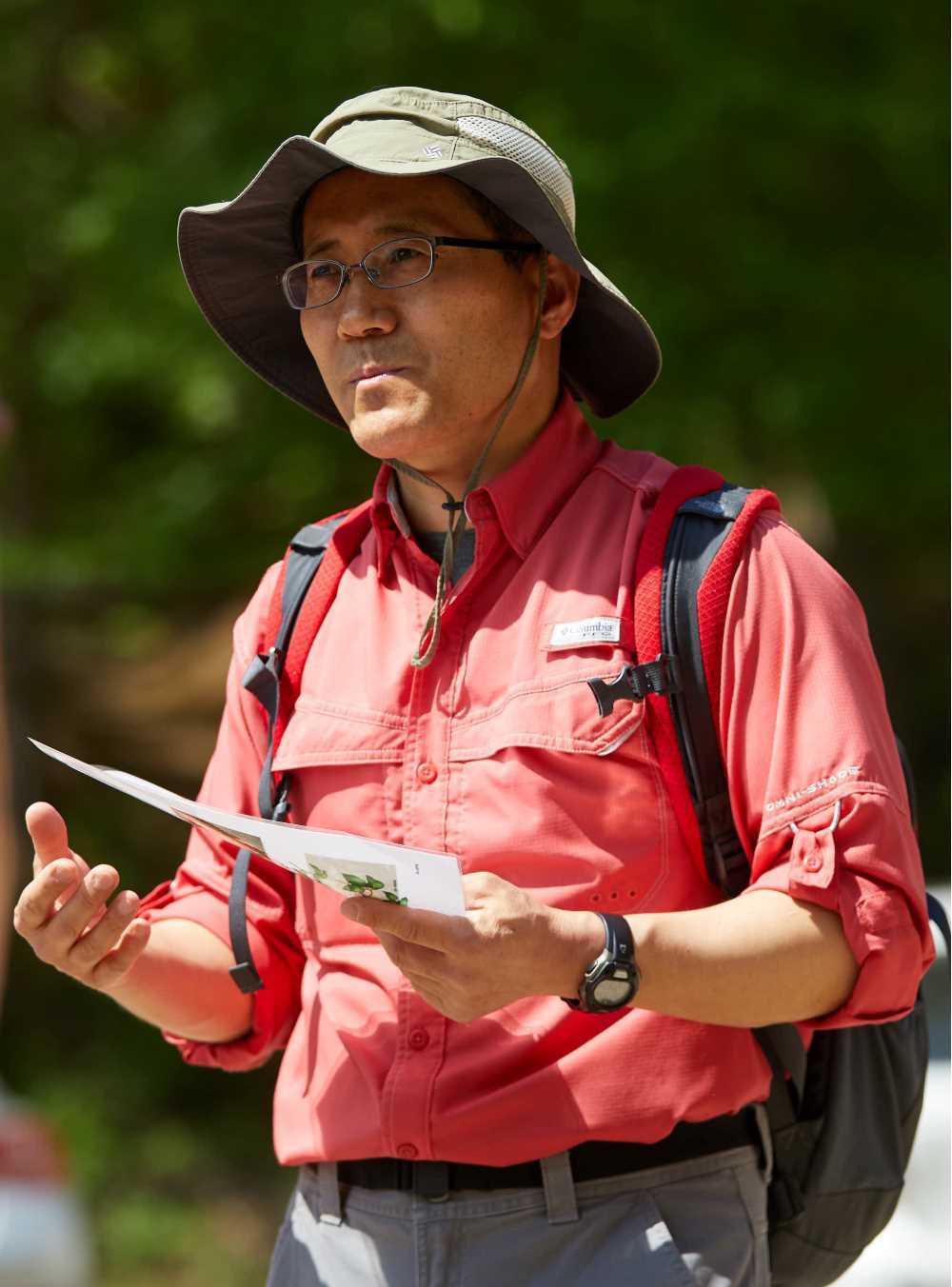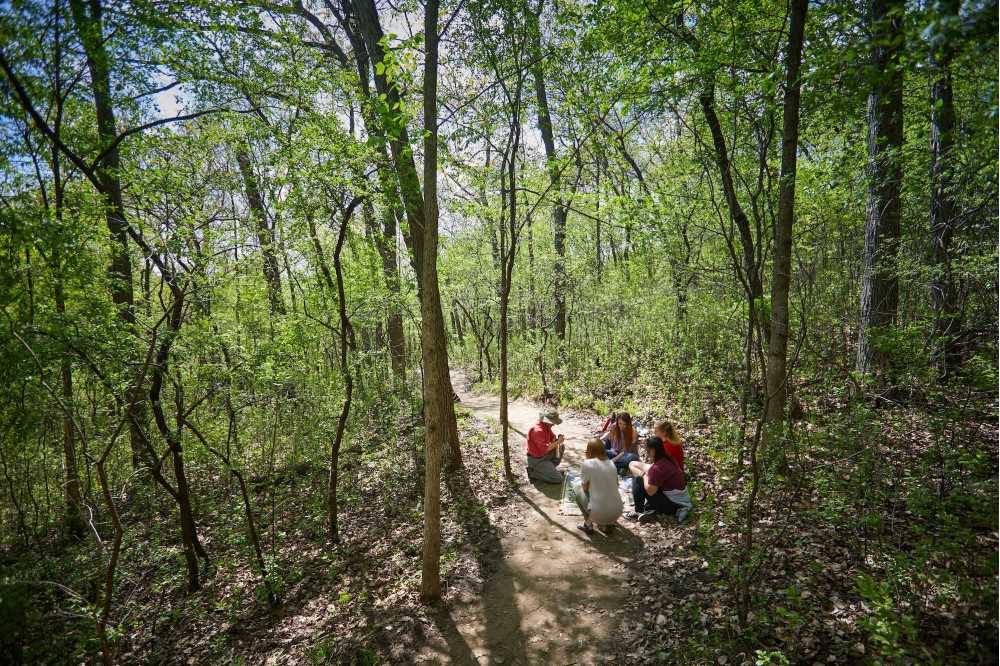A recent study shows children’s mental health can be improved by exposure to nature through a practice known as forest bathing.
Researchers at the University of Wisconsin-La Crosse brought a dozen kids between the ages of 9 and 14 to a forest in La Crosse during the summer of 2019 to participate in guided forest therapy.
The participants all dealt with mental health challenges like anxiety and/or depression, and each experienced relief from being outside.
News with a little more humanity
WPR’s “Wisconsin Today” newsletter keeps you connected to the state you love without feeling overwhelmed. No paywall. No agenda. No corporate filter.

“There’s a significant decrease in the blood pressure. Their energy level increased. Their concentration level increased, and the level of stress decreased,” said Namyun Kil, the study’s author and an associate professor in UW-La Crosse’s Recreation Management & Recreation Therapy department.
The study’s findings were published last month in the International Journal of Mental Health Promotion Psychological and Physiological Health.
Forest bathing involves a slow, mindful immersion in nature. It’s typically led by a trained instructor. Also known as forest therapy, it promotes relaxation and studies done in other countries suggest the practice has several physical and mental health benefits.
Kil said based on the study’s results, he’s encouraging parents to spend more time in nature with their children, especially those who may have a mental health challenge like attention deficit hyperactivity disorder or ADHD.
“We call it nature’s prescription,” said Kil. “Even the medical doctors prescribe the nature connection, not the medicine.”
Kil has two other ongoing studies — one that may show military veterans with post-traumatic stress disorder could benefit from forest bathing. Another is measuring if forest bathing may be better for physical health than a brisk walk in nature.
Forest therapy guide Kate Bast says the study’s findings support other studies of forest bathing which show health benefits of the practice, like lowering blood pressure and helping people to relax.
“It’s amazing to see people kind of loosen up,” said Bast, who owns Shinrin-yoku Madison. “Their shoulder muscles soften. They really fall into the pace of walking more slowly and spreading out. They get comfortable with the idea of not having their phones on.”
Shinrin-yoku is the term for the practice that started in Japan in the 1980s.
While people could just visit the forest on their own, Bast said having a forest therapy guide is like taking a class from a yoga instructor.
“We manage all the aspects of the walk and help people feel safe,” she said. “But it’s also learning how to be in nature in this particular way. Going silently, going slowly, learning how to connect and exist in the present moment and notice what’s going on.”
Bast offers group and individual classes and has led school groups through forest bathing sessions. She started her business in April 2019, about a year before the pandemic started.
“There was an increase (in business when the pandemic started) and as I got more comfortable with the terms of COVID and what was safe and what wasn’t, I started hosting more walks,” Bast said. “People needed to get out, needed as much of a social connection as a nature connection. It was a way to do something fun that was fun and also good for you.”
Wisconsin Public Radio, © Copyright 2026, Board of Regents of the University of Wisconsin System and Wisconsin Educational Communications Board.



